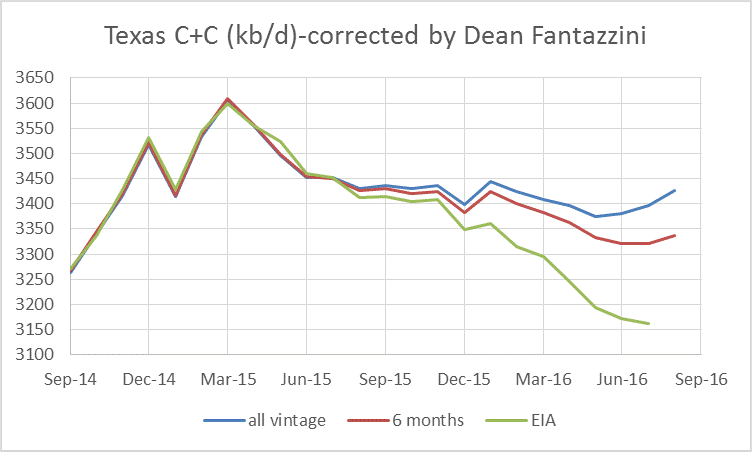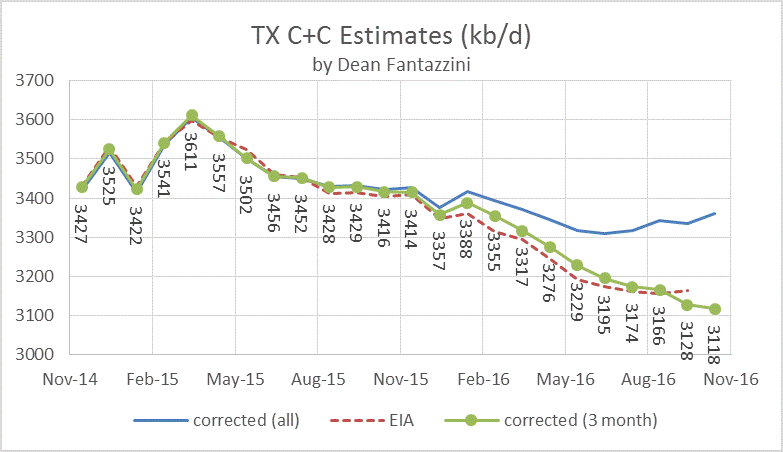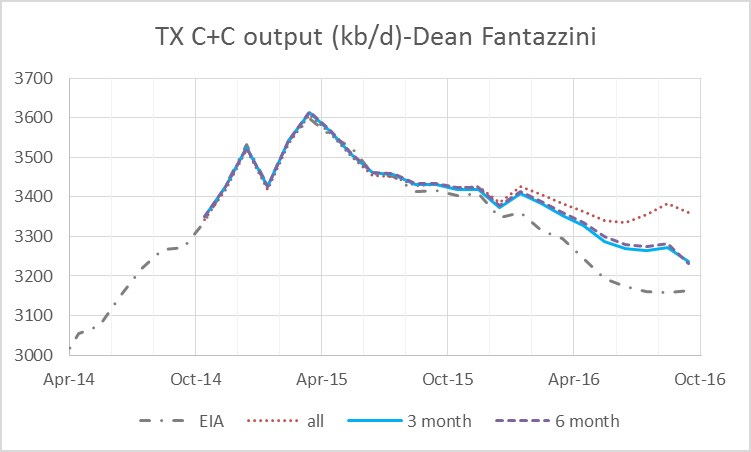The Railroad Commission of Texas (RRC) has recently reported new data for oil and natural gas output through August 2016. Dean Fantazzini has kindly shared his corrected data using the most recent data from the RRC. He uses a statistical procedure which adds up the changes in the RRC data from April 2014 to July 2016 to see how incomplete the data has been in the past and uses this to estimate the “missing barrels of oil and cubic feet of natural gas” that will be added to the current “incomplete data” over the following 24 months. In the past the RRC data has been about 99% complete when you look back 24 months from the most recently reported month. Dean estimates the “correction factors” which need to be added to the reported data to get a more reliable estimate of recent output levels.
The correction factors for the month of August looked very low compared to the historical correction factors so I asked Dean to check for a statistical break in the correction factors. Essentially in the past there has been no statistical trend in the correction factors based on Dean’s analysis, but I wondered if perhaps there was now a downward trend in the correction factors due to the digitization of reporting by the RRC.
I will quote Dean’s findings below (from an e-mail):
I checked the time series for each correcting factor -for crude oil only- using unit root tests with a breakpoint, and I found that the correcting factors for the latest 6 months are non-stationary (even at the 1% level), with a break in the constant which took place in February 2016. The previous months (older than 6 months) are instead stationary.
The effect of the ongoing digitalization process seems to (finally) appear in the data. However, many more data will be needed to confirm the break in the data structure: for example, the break in the constant is significant only at the 5% probability level, but not at the 1% level.
Given this evidence, reporting both the corrected data using all the vintage data and the corrected data using the last 3 months (to take the structural break into account) may be a wise thing.
I decided to show the correction based on the last 6 months rather than 3 months because that is where the break occurs, though the difference between 3 months and 6 months is not significant (a difference of 12 kb/d less on average each month.) I also show the previous method of using all the data (Jan 2014 to Aug 2016 for oil and April 2014 to Aug 2016 condensate), this is called all vintage in the chart that follows.

Read More




